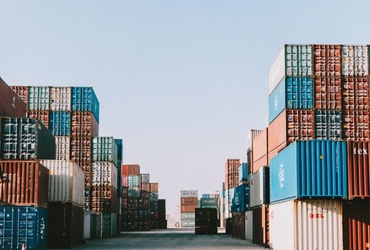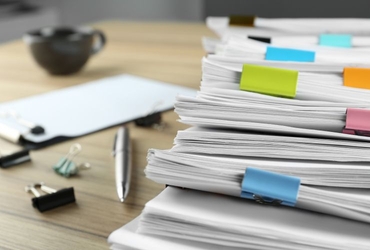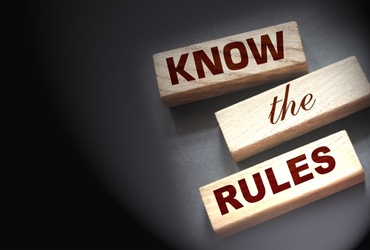
5 common mistakes when importing from China



Avoiding mistakes when importing from China
The importing process alone can be complicated. Doing so from a country that speaks a whole other language and has completely different rules and regulations can be even more overwhelming.
China is the world’s largest exporter with its total exports surpassing $2 trillion in 2016. To put that into perspective, that’s 45.8% more than the world’s second-largest exporter, the United States. Needless to say, trade opportunities with China are plenty and there’s certainly much potential you can tap into.
Whether you’re a new or seasoned importer from China, there are certain details that you need to pay close attention to as these may make or break your import. Here’s a list of the top 5 mistakes made when importing from China.
1. Not understanding the Chinese way of doing business
You can’t do business without proper communication. This applies to any businessman from any country trying to strike a business deal. China is such a vast country that it’s home to many different cultures, customs, and languages. There are at least eight different linguistic groups, not to mention the hundreds of dialects. The official language is Mandarin, but that’s not to say that you’ll need to speak fluent Mandarin in order to conduct business with a Chinese businessman (although it would help your case a lot). But if you’re looking to establish a long-term relationship with Chinese businessman, going beyond the basic introductory phrases will be extremely handy.
Also keep in mind the Chinese culture and way of doing business. What may appear polite to you may come off as rude to the Chinese, and vice versa, and you definitely wouldn’t want to lose a deal just because of an easily avoidable misinterpretation. Make sure to give our post on tips on negotiating with Chinese companies a read for a clearer picture of what to do and what not to do.
2. Not investigating the applicable rules and regulations
Knowing the trade rules of the product you’re importing is part of any import and export process. But when importing from China, it’s best to take extra precaution. It’s not uncommon for Chinese suppliers to produce goods that fail to comply with international standards. In fact, it’s reported that in certain industries, as few as 5% of Chinese suppliers actually meet the guidelines implemented by the European Union.
Depending on where you’re importing to, we recommend that you properly investigate not only the import laws of the importing country but also the regulation that applies to the product. That way, you know exactly what to look for when choosing a supplier in China to ensure that the products you’re importing comply with the right standards. This helps to prevent problems at customs clearance and delays. A good resource for information on product guidelines is the chambers of commerce and customs offices of your country.
3. Choosing the wrong Incoterm
Incoterms are a clear set of conditions by which both importer and exporter are obliged to abide in any international transaction. This prevents misinterpretation and confusion over costs, risks, management, and responsibilities. When importing from China, it’s highly advisable to pay close attention to the pros and cons of the Incoterm you choose.
Three of the more common Incoterms used for imports from China are the FOB, CIF, and EXW Incoterm. However, each of these has advantages and disadvantages that could play a massive role in the overall cost of your import. The CIF Incoterm may seem like the better option due to its low costs and relatively fewer responsibilities. But this could backfire later on as with limited control, chances are you’ll have to kowtow to everything your supplier decides, which could end up in significantly higher costs. In general, we recommend choosing the FOB Incoterm as this gives you greater control over the entire import process and its costs.
For more information, you may read our consultant’s post on the main differences between the FOB, CIF, and EXW Incoterms when importing from China.
4. Choosing unreliable suppliers
As an importer, you’re responsible for the product that you import. This means that you’re answerable to customs should anything go wrong with your import, and are liable should your product cause injuries to any consumer. That said, it’s extremely important to choose reliable suppliers from China.
Before signing an agreement with a supplier, make sure you’ve done proper research into its production process. This means knowing where it obtains its materials from and even speaking to other importers who are either importing the same products or have dealt with said supplier. You may also want to take a trip down to the production ground personally for additional assurance. Consider bringing a specialist who understands the production process of the product you’re importing with you and can thus advise you on potential problems that may come up.
5. Not planning in advance
Time is an important factor to consider for any import you’re doing from China. Any one of the above-mentioned errors alone can cause massive delays and disruption to your logistics chain, let alone were two or more to occur. With these in mind, always begin planning your import from China with extra time to spare.
At iContainers, we recommend that you start organizing your import at least three months in advance. Depending on the port in China from which you’re importing and the destination point, transit times may vary rather significantly. Also keep in mind time needed for inland transportation.
Ideally, you should have your shipment booked at least weeks before the vessel sails. This gives you extra time for your agent at origin and provider to get all the documents required prepared in time, prepare the shipment, and allow for a time buffer should something go wrong. To obtain the best transit times and minimize hiccups, always speak to your freight forwarder for the best ocean freight rates.
Related Articles


